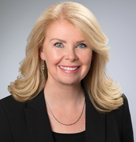Physician Thriving: Tools to Promote Thriving
By Hilary McClafferty, MD, FAAP
Much has been written about the complex challenges of modern medical practice and the prevalence of physician burnout. There is no simple answer. All of us, at every level of training, practice, and administration must step up and take responsibility for changing the current dynamic in medicine.
Mindfulness is one tool that has been explored as an evidence-based approach that can be used to buffer stress and gain perspective as one moves through daily practice challenges.
Other useful approaches are outlined in an important article by Zwack and Schweitzer (1) entitled “If every fifth physician is affected by burnout, what about the other four? Resilience strategies of experienced physicians.” Their results are based on 200 physician interviews of physicians with an average of 14 years in practice. The takeaway message was that the valuable ability to invest personal resources in a way that initiates positive resource spirals, in spite of stressful working conditions, is highly protective against burnout over time.
Broken down, the characteristics identified to promote this creation of positive resource spirals include some intangible, yet very important personal characteristics, including:
- Useful attitudes (realistic acceptance of challenges such as loss, flexibility, self-awareness)
- Gratification (acknowledging and nurturing relationships with colleagues, patients, family, friends)
- Resilience building (self-reflection, time for oneself, self-compassion, spirituality and a sense of something greater than oneself)
These themes can be further refined through the use of mindfulness to help focus attention on positive steps and by helping physicians maintain a healthy sense of perspective in the moment as skills are built and reinforced over time.
A second article examining thriving in medicine, ‘Thriving in scrubs: a qualitative study of resident resilience’ (2) comes from the OB/Gyn literature and involves qualitative data from 18 Ob/Gyn residents (PL 1-4) where the following themes emerged:
- Resilience is rooted in a calling to medicine
- Resilience is a developmental phenomenon
- Adversity catalyzes acquisition of adaptive coping skills
- Personal connections (peers, mentors, patients, family) offer significant buffer for stress
A striking graphic in this article helps to convey the sense that although medicine is a challenging calling, we are shaped and strengthened by the events we encounter, each on our own path of growth and maturity, and that even as difficulties occur, we have the inherent ability to become stronger over time and use the roots and anchors we have cultivated such as healthy relationships, healthy lifestyle practices, sense of calling to a worthy profession, and belief in something greater than ourselves to allow us to weather the inevitable difficulties, emerge stronger, and teach this perspective and awareness to those following us in training.
Obviously, many changes are needed in our medical culture, and these will be driven by physicians who are insightful, strong, and dedicated to their profession. When you think about your individual strengths, are you able to identify one characteristic you might use as a foundation to create a positive resource spiral for yourself? Where might you start? And conversely, what behavior or attitude might you release that could be holding you back from thriving more fully? I encourage you to explore these articles and begin to identify key attitudes and actions that will help you become a powerful agent of change.
References
- Zwack, Schweitzer. If every fifth physician is affected by burnout, what about the other four? Resilience strategies of experienced physicians. Acad Med. 2013 Mar;88(3):382-9.
- Ford Winkel, et al. Thriving in scrubs: a qualitative study of resident resilience. Reprod Health. 2018;15:53.
 Hilary McClafferty, MD, FAAP, is board certified in pediatrics, pediatric emergency medicine, and integrative medicine. She writes and speaks nationally on physician wellbeing, resiliency, and whole physician wellness. She is a certified physician coach and author of two books: Mind-Body Medicine in Clinical Practice and Integrative Pediatrics: Art, Science, and Clinical Application, and editor of two Special Editions on the use of integrative medicine in practice. She is Founding Director of the Pediatric Integrative Medicine in Residency program, University of Arizona, and Medical Director, Pediatric Emergency Medicine at Tucson Medical Center, Tucson, AZ. Email: mcclaffertyh@gmail.com Website: www.drmcclafferty.com Twitter: @drmcclafferty
Hilary McClafferty, MD, FAAP, is board certified in pediatrics, pediatric emergency medicine, and integrative medicine. She writes and speaks nationally on physician wellbeing, resiliency, and whole physician wellness. She is a certified physician coach and author of two books: Mind-Body Medicine in Clinical Practice and Integrative Pediatrics: Art, Science, and Clinical Application, and editor of two Special Editions on the use of integrative medicine in practice. She is Founding Director of the Pediatric Integrative Medicine in Residency program, University of Arizona, and Medical Director, Pediatric Emergency Medicine at Tucson Medical Center, Tucson, AZ. Email: mcclaffertyh@gmail.com Website: www.drmcclafferty.com Twitter: @drmcclafferty






